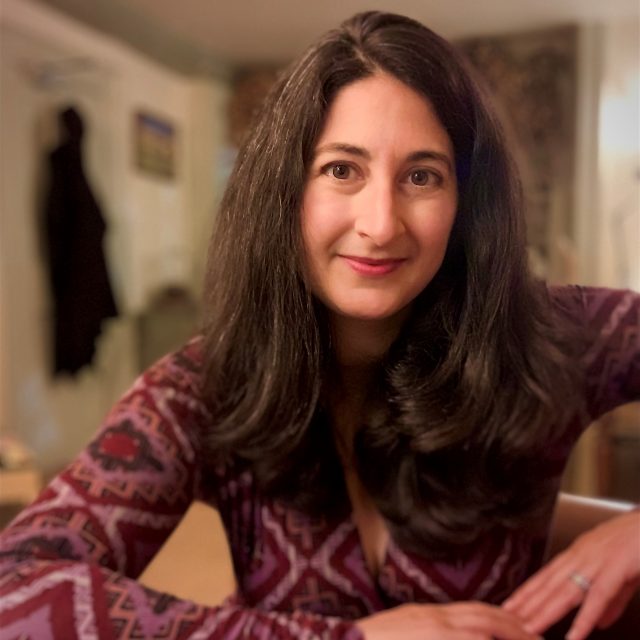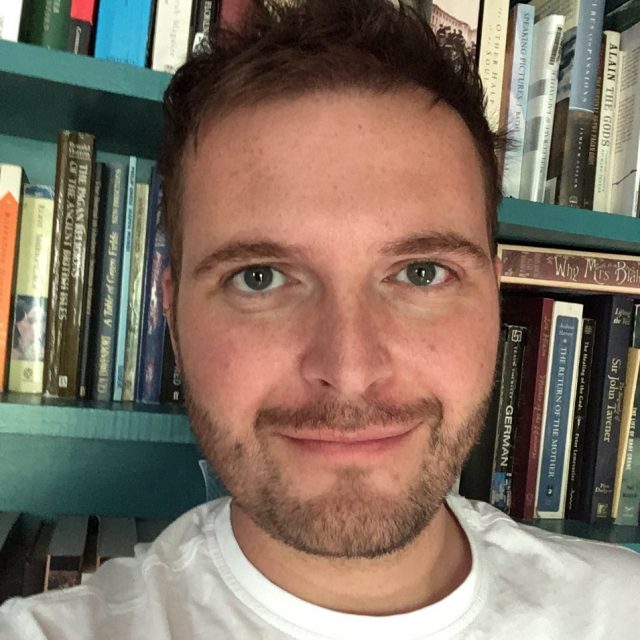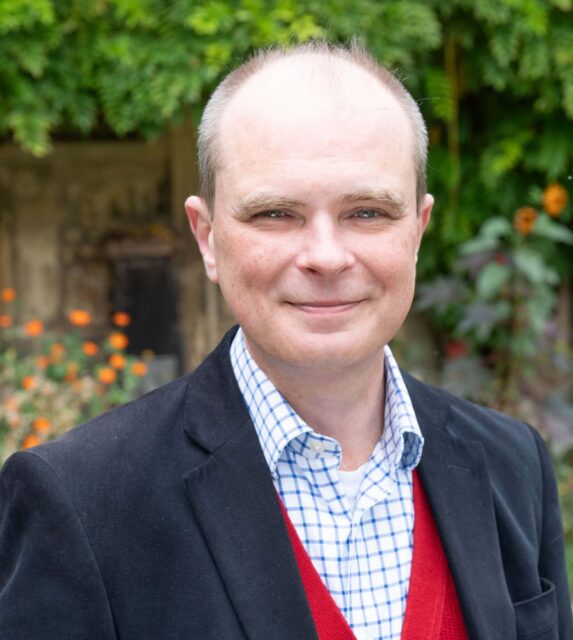English Language and Literature
undergraduates
Why English at St Edmund Hall?
St Edmund Hall has a long tradition of outstanding scholarship in the field of literary studies as well as a creative and imaginative approach to the study of English. We admit around eight students per year to the Single Honours Programme as well as English and Modern Languages. Our students are diverse and come from a wide range of backgrounds both within the UK and around the world. We are proud of their intellectual curiosity, dedication to their studies, and creativity.
Students are taught by several dedicated and experienced tutors who cover a range of subjects across the course – from Anglo-Saxon poetry to contemporary writing in Britain and America and everything in between. One great benefit of the tutorial system is that it responds to the individual needs and aspirations of students. At St Edmund Hall, we place a strong emphasis on the craft of writing in particular. During the three year course, students mature into sophisticated critics with their own distinctive style and approach.
The English course here is at once both so liberating and supportive. We are given the freedom to follow our interests, but always under the guidance of the experts. My subject tutors are the most intelligent, supportive and interesting people I have ever met.
Meg, English Language and Literature
The English course spans the range of literature in English from its earliest roots in Anglo-Saxon to 21st century texts. Students learns through a combination of tutorials, which are one-to-one or one-to-two meetings, and classes with the other St Edmund Hall English students in their year group. Students also attend lectures by faculty members from across the university. The tutors at Teddy Hall offer comprehensive coverage of the course, meaning that almost all teaching is done ‘in house’.
“I learned to love literature at school. I learned to understand it at St Edmund Hall.” Stewart Lee – writer, comedian, alumnus and Honorary Fellow
More information about the English course can be found on the University website.
Creative writing and the arts are special strengths at Teddy Hall, and our students enjoy a great number of extra-curricular opportunities:
- The popular, student-run Wednesday Workshops for creative writing, which provide an opportunity to share your work and receive constructive feedback from peers.
- The St Edmund Hall Gallery, an annual collection of creative writing and visual art by members of the College (organised and published by current students).
- The ‘Meet the Poet’ reading series, which brings a well known poet to the College every term to read and meet with students.
- The Hall Writers’ Forum, which provides an online community for current students, academics and alumni and encourages new writing and cross-disciplinary discussion.
- St Edmund Hall’s Centre for the Creative Brain organises free termly events with guest speakers and aims to promote interdisciplinary discussion of how insights from neuroscience can influence our thinking about creativity, for instance with relation to literature, art and music.
Many of our alumni have gone on to careers in writing, in many different forms – find out more about them by browsing the Hall Writers’ Directory.
The College also has numerous awards for writing and the creative arts, including several prizes for journalism, poetry and theatre.
Course Requirements and Information
- A typical A-Level offer: AAA (or equivalent)
- An A-Level in English is required. A language or History may also be useful.
- Other application requirements before your interview:
- A sample of written work – such as a marked essay from school.
Shortlisted applicants have two separate twenty-minute interviews with the English tutors. In both interviews, they are asked to consider a poem (which they have received thirty minutes in advance of the interview itself). The first part of the discussion focuses on the text, and candidates are encouraged to ‘close read’ the poem in order to comment on its form, language, tone, and other aspects of style. At the end of each interview, the discussion may turn to broader topics in literary study as well as material found on the students’ UCAS forms.
Watch a couple of talks on Shakespeare, given by our English tutor Dr Tom McFaul.
Our Tutors

Erica
McAlpine
A C Cooper Fellow and Tutor in English Language & Literature
Professor Erica McAlpine teaches 19th-, 20th- and 21st- century literature and has special interests in British Romantic and 20th-century American poetry. John Keats, John Clare, Robert Frost, and Elizabeth Bishop are a few of her favourite writers. Her current book project is about mistakes in poems.

Mark
Williams
Fellow and Tutor in English Language and Literature
Professor Mark Williams teaches literature in English across the period 650-1550, which includes the earliest English writing which has survived, that of the Anglo-Saxons, which undergraduates study in their first year. He also teaches the Shakespeare paper to the second and third years, as well as half of the first-year introduction to English language and literature. As a Celtic specialist, Mark is also responsible for teaching the extraordinary and beautiful literatures of medieval Wales and Ireland, which can be studied (in the original languages) by English students as special options in their final year. He also teaches the minor Celtic languages – Cornish, Scottish Gaelic, Breton, and Manx.

Tom
MacFaul
Fellow by Special Election in English
Dr Tom MacFaul teaches English literature from the 16th to the 18th Century: he has particular interests in Shakespeare and other dramatists of his time, and Renaissance poets such as Donne, Spenser, Herbert and Milton. His research focuses on issues such as gender and sexuality, ecocriticism, and the representation of space. He also teaches dissertations on a wide variety of topics, from Renaissance poetry to contemporary fiction.

Mary Catherine
O'Connor
Non-Stipendiary Lecturer in English
Mary O’Connor is a Non-Stipendiary Lecturer in English at St Edmund Hall.

Rebecca
Bradburn
Stipendiary Lecturer in English
Dr Rebecca Bradburn is currently a Stipendiary Lecturer in English post-1830 at St Edmund Hall and Oriel College. Originally from the North-East of England, she received her DPhil from the University of Oxford in 2025.
UCAS course codes
Q300
Places available: 8
See syllabus and entry requirements for further information.